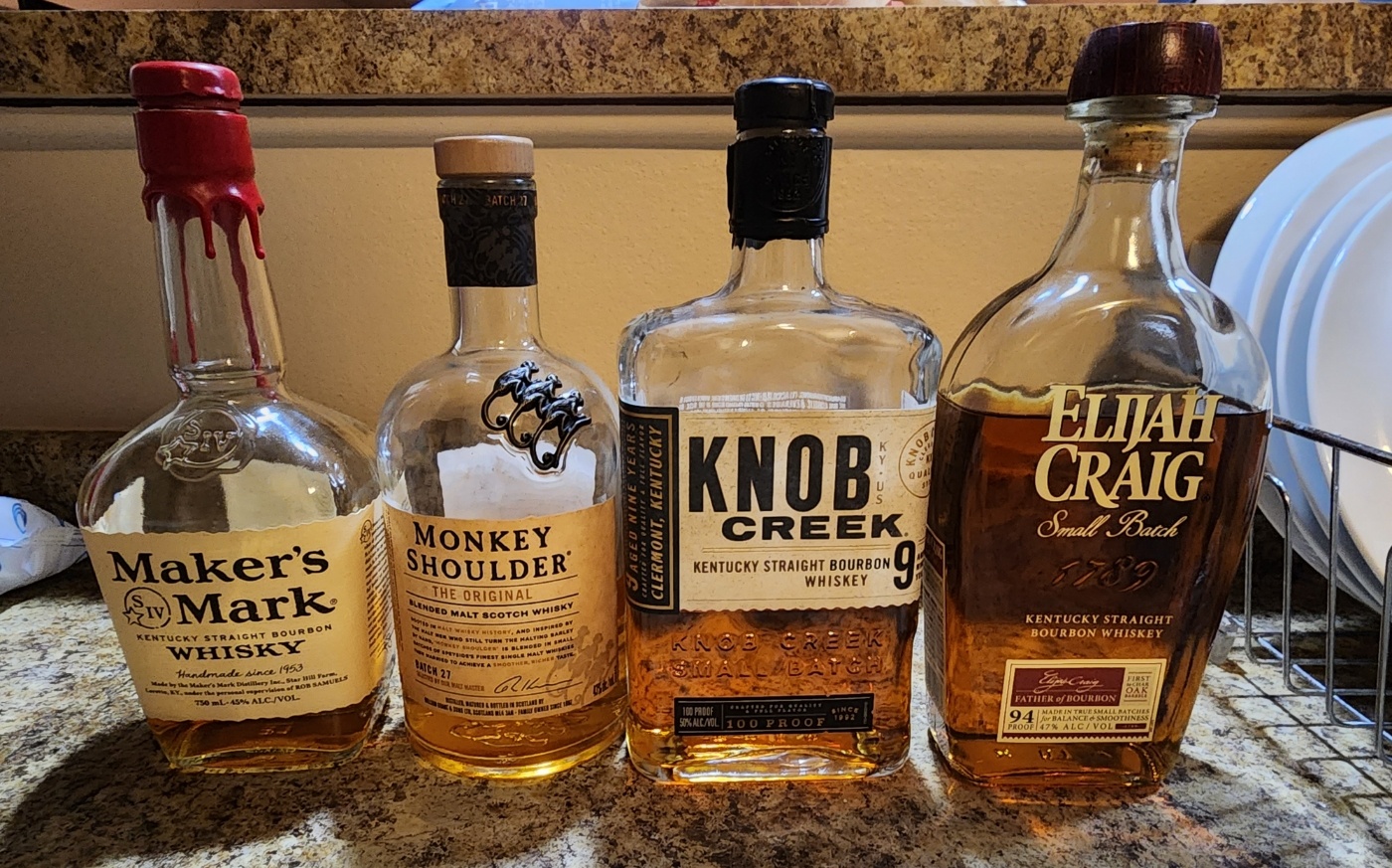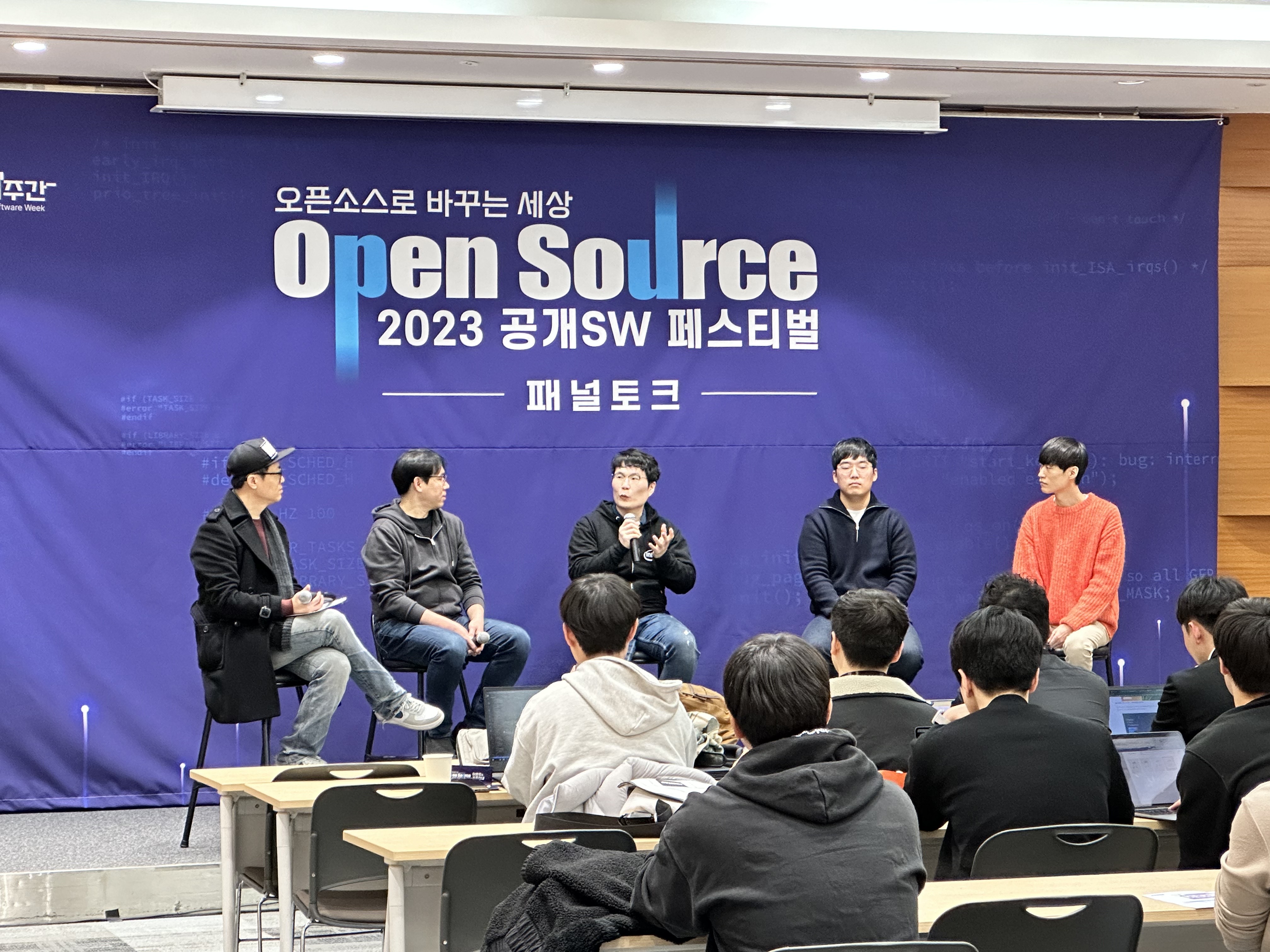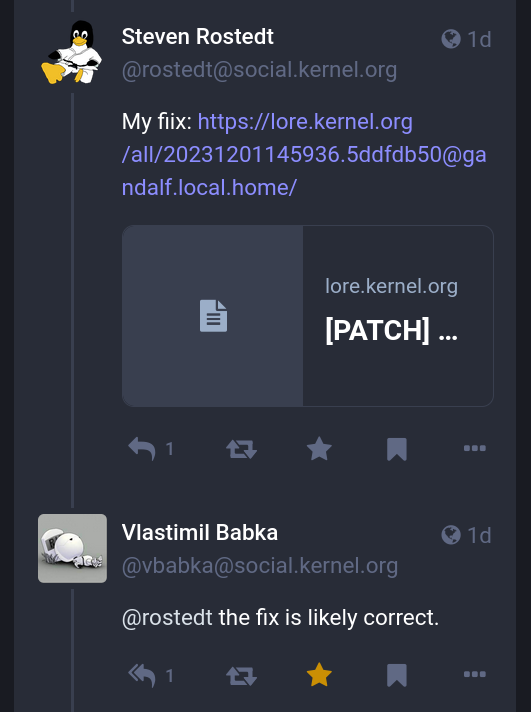Posts
579Following
105Followers
119- Linux Kernel Developer @ Oracle (Linux Kernel MM) (2025.02 ~ Present)
- Reviewer for the Linux Slab & Reverse Mapping subsystem
- Former Intern @ NVIDIA, SK Hynix, Panmnesia (Security, MM and CXL)
- B.Sc. in Computer Science & Engineering, Chungnam National University (Class of 2025)
Opinions are my own.
My interests are:
Memory Management,
Computer Architecture,
Circuit Design,
Virtualization
Harry (Hyeonggon) Yoo
hyeyooGood bye Purdue University!
It has been so intense, now suffering from jet lag and getting back to real life.
Harry (Hyeonggon) Yoo
hyeyooHarry (Hyeonggon) Yoo
hyeyoo```As of December 18, 2023, the post-migration process for Mojang accounts has officially ended```
Harry (Hyeonggon) Yoo
hyeyooNow trying to do some work (a little) on CXL emulation in QEMU, though I'm not sure how far I want to pursue as my heart is still in MM.
https://lore.kernel.org/linux-cxl/20231222090051.3265307-1-42.hyeyoo@gmail.com/T
rob pike
robpike@hachyderm.ioThis link captures the confusion about how to pronounce "fsck":
https://lwn.net/Articles/190223/
Here's the truth. Ted Kowalski, username frodo, may he rest in peace, was the original author, just down the hall from my office in Murray Hill, and his name for the program had a 'u' where there is now an 's'. Management made him change it for distribution, but they couldn't make him change his pronunciation.
Nathan Chancellor
nathanchance@fosstodon.orgInteresting post from the Android Rust compiler team:
https://android-developers.googleblog.com/2023/12/faster-rust-toolchains-for-android.html
Seems to line up with my benchmarks for performing a lot of the same optimization techniques to LLVM and clang and it is cool to see the amount of savings that this translates to for CI. Reminds me that I should look at integrating my kernel.org LLVM builds into tuxmake so that we can use them with tuxsuite…
Harry (Hyeonggon) Yoo
hyeyooAUSTRALOPITHECUS 🇺🇦🇨🇿
lkundrak@metalhead.clubChristian Brauner 🦊🐺
brauner@mastodon.socialHey #Linux #Kernel people. Last year we had the first #Kernel Devroom at #FOSDEM. And we're running the #Kernel Devroom for #FOSDEM in 2024 as well!
#FOSDEM 2024 is taking place over the weekend of the 3 & 4 February in Brussels, Belgium!
It is a wonderful event that's very close to my and a lot of people's hearts!
Join @rppt, Daniel Borkmann, and @stgraber, and myself and make this another great #FOSDEM!
We're very excited for your submissions!
https://lists.fosdem.org/pipermail/fosdem/2023q4/003536.html
Nathan Chancellor
nathanchance@fosstodon.orgFor the 2023 ClangBuiltLinux meetup, I decided to revisit my benchmarks comparing how building LLVM with different optimizations such as LTO, PGO, and BOLT can impact how fast it can build Linux kernels:
TL;DR: PGO and BOLT can give huge wins, LTO not so much.
It was pretty wild to see how much PGO made a difference, almost twice as fast in some cases... The kernel.org LLVM toolchains I provide are built with PGO and BOLT for this reason:
Harry (Hyeonggon) Yoo
hyeyooOnly an address (to an Local APIC) can be assigned to an interrupt vector?
K. Ryabitsev-Prime 🍁
monsieuriconThe fax number you should use from now on is 1-900-555-1212.














